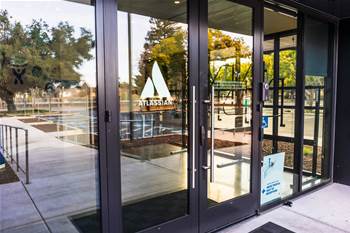Atlassian has added a quarter of its entire workforce during the pandemic and is plotting ways to bring them together with existing staff to build in-person relationships.
Work futurist Dominic Price told a PwC report launch on Wednesday that staff had also forgotten some ways of working on their return to physical offices, and needed to be reminded.
Price noted he had met “loads of people” in his eight years at Atlassian, travelling to the company’s various global offices, and these were relationships he maintained and used online during the pandemic.
However, he noted, the experience was a very different one for the large number of people that Atlassian had hired and remotely onboarded during Covid.
“We’ve added 25 percent of our workforce [during] Covid,” Price said.
“They’ve never been into an [Atlassian] office, so I’m trying to empathise with them and help them build networks. I can use my privilege as an ally to connect them with other people, but their experience is not just a bit different than mine, it’s fundamentally different. Not better or worse but just different.
“So how do you build those meaningful relationships when you’ve not broken bread together?”
Price said Atlassian is planning to bring its people together “when conditions allow for … purposeful collaboration” and to build relationships.
“Not to do transactional work together but to build those bonds,” he said.
“But we still don't know what that will look like. We know our intent there but we haven’t got a [clue] of what it’s going to look like.”
While Atlassian was reasonably well-prepared to move to a fully remote working model, Price noted the transition had not been all smooth sailing.
“The weird thing was ‘home’ was our third-biggest office when Covid hit,” he said.
“I don't think we were arrogant. We’d gone through a journey to get there and then within 48 hours everyone worked from home, and we’re like, ‘This is awesome’. Then we were like, ‘Now what happens?’
“We realised so many of our practices, our ways of working, assumed a certain amount of people colocated.
“Even though we are a globally distributed organisation and you had to work across borders and time zones, that was the exception, not the rule.”
Price said Atlassian had a “one person dials in, we all dial in” rule pre-Covid for meetings.
“That had worked fine for years, and we’ve maintained that, but what we’ve found now is the swing back [to office-based work] is quite different because geographically it is different,” he said.
“In the US, our offices are still fully closed. In Sydney I think we’ve just got up to 50 percent capacity.
“I was on a call the other week and there’s a whole lot of people in this room. And I was like, “No, remember the rule?’
“It’s been such a shift back, the nostalgia we’ve missed about the office hasn’t taken us back one year, it’s taken us back five years,” Price said, adding people had forgotten some pre-Covid behaviours and ways of work.
“We’re just having to remind people of those things and not do it through hard and fast rules but ... through common sense and guidelines,” he continued.
“Here is how to think about inclusion, here’s how to think about getting people engaged in a virtual meeting, what does that look like, and trusting our people to do it.
“We have to educate them a little bit of the way there, but I guarantee in the last year, half our experiments have gone spectacularly wrong and we’ve learned more from them than the ones that went well.”
One change that occurred in Covid is the rise of asynchronous work, which Price said held “massive upside” for teams that worked across time zones.
“If one of the ‘team of teams’ is overseas, actually booking a time to be online is really inconvenient for everyone, so let's create a page in a document, write our thoughts down, we’ll share it with you overnight, and you comment and rip it to shreds, and then we will do the same thing,” he said.
“So we’re collaborating in an async model where we don’t have to be online.
“We are getting the best of our people to contribute without having to make them all on the same time zone, which is a massive upside for us.”
Price also said that post-Covid there would need to be a greater focus on reskilling employees for future role changes - and he pointed to Woolworth’s $50 million future of work fund as a potential model for other large employers.
“How can we take that as a boilerplate, as an example, to other organisations and say, ‘how do we, between business, community and government, own reskilling?’” he said.




.png&h=140&w=231&c=1&s=0)
.jpg&h=140&w=231&c=1&s=0)




















